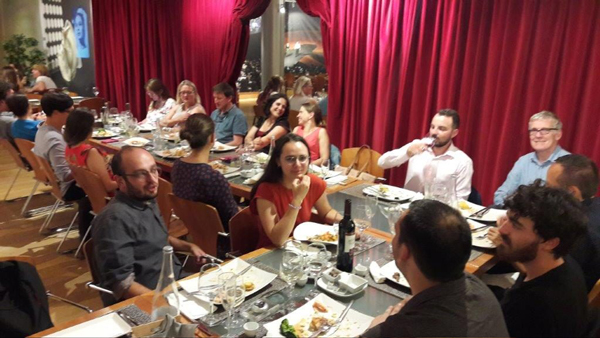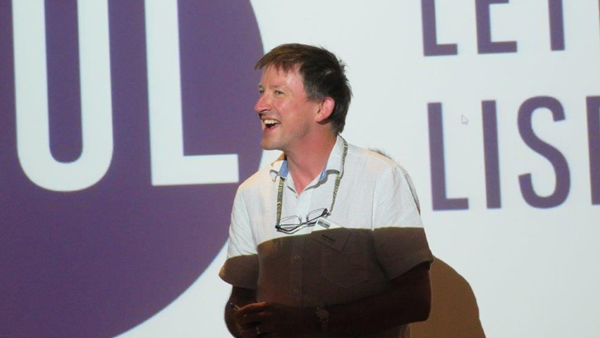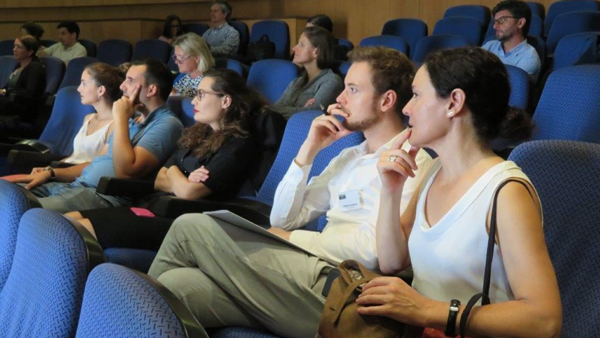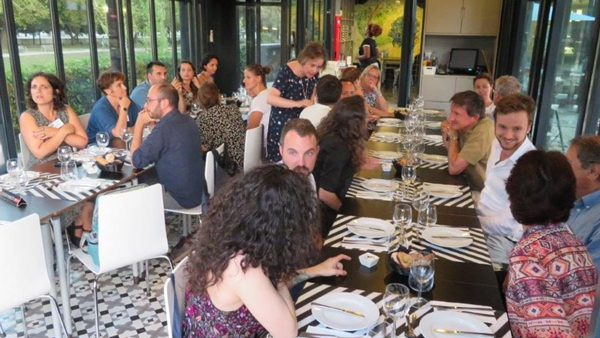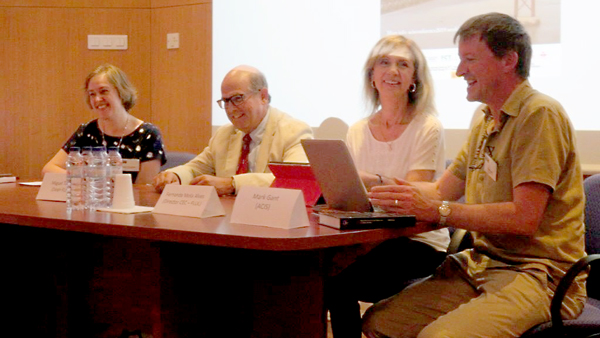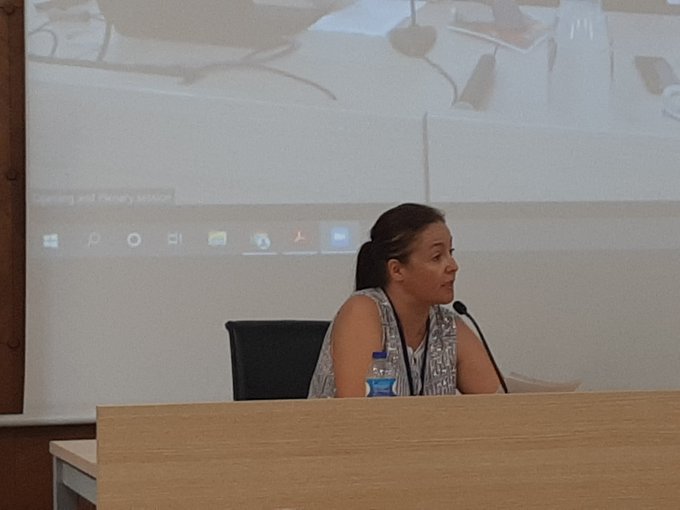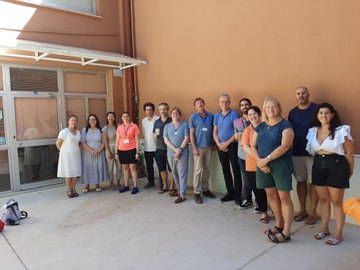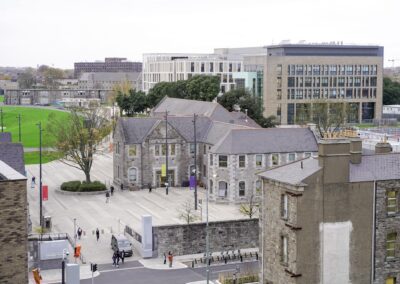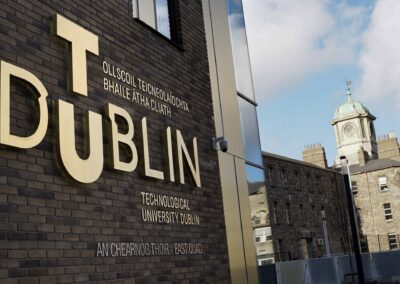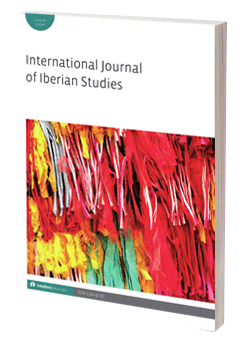The 45th Association for Iberian Studies Annual Conference
ACIS holds an international, multidisciplinary conference in early September each year.
Technological University Dublin. 4-6 September 2024. Hybrid conference.
The Association holds an international, multidisciplinary conference in early September every year. The conference circulates between host universities in Spain, Portugal, the United Kingdom and Ireland, and papers and panels focus on nineteenth, twentieth, and twenty-first century socio-cultural, economic, and political issues with a particular focus on the Iberian Peninsula and its relations with the wider Lusophone and Hispanic worlds. The atmosphere is a positive and supportive one and established academics, early career academics and postgraduates are all equally welcome.
We are delighted to announce that the 45th annual ACIS Conference will take place at Technological University Dublin, 4-6 September 2024. It will be a hybrid conference, and participants will have the opportunity to attend online and/ or in person.
Host organiser
Dr Deirdre Kelly (Technological University Dublin).
Host organising committee
Dr Deirdre Kelly (Technological University Dublin)
Dr Pilar Molina (Technological University Dublin)
Dr Mirna Vohnsen (Technological University Dublin)
You are cordially invited to propose a paper, panel or workshop presentation. Proposals for individual papers as well as panels on specific themes (max. four papers per panel) are encouraged. A small number of partial conference fee bursaries will be available for postgraduate students.
If you wish to offer a paper, please see the Guidelines for Papers and send your proposal to the ACIS 2024 Programme Convenors, Dr Deirdre Kelly, Dr Pilar Molina and Dr Mirna Vohnsen at the email address: 45acis2024@gmail.com by FRIDAY 17th May 2024. Informal enquiries concerning papers and topics are welcome before the deadline. Conference booking can be made at ACIS Registration 2024.
You are cordially invited to submit a proposal for a poster presentation. Proposals for posters on specific themes are encouraged.
If you wish to submit a poster, please send your proposal to the ACIS 2024 Programme Convenors, Dr Deirdre Kelly, Dr Pilar Molina and Dr Mirna Vohnsen at the email address: 45acis2024@gmail.com by Friday 17th May 2024. Informal enquiries concerning posters, papers and topics are welcome before the deadline.
Registration
Registration information is available at this link.
Please see the ASIC 2024 Conference Website for more information.
KEYNOTE SPEAKERS
Teresa Pinheiro: “Decolonising the Spirit(s) of April: Changing Memories of the Carnation Revolution”
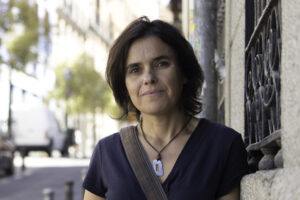
Teresa Pinheiro is Professor of Iberian Studies at the Institute for European Studies, Chemnitz University of Technology. She received her PhD in Cultural Anthropology from the University of Paderborn in 2002. In 2014 she was a visiting researcher at the Hebrew University, Jerusalem and in 2015/2016 was a visiting professor at Saarland University. In 2017–2018 she was awarded an Alexander von Humboldt research grant for experienced researchers at the Consejo Superior de Investigaciones Científicas, Madrid. She is currently President of the Ettersberg Foundation’s Council, President of the German Association of Catalan Studies and Vice-president of the German Cultural Studies Society. Within Iberian Studies, her research fields are representations of collective identity and politics of memory, on which she has extensively published in Catalan, English, French German, Portuguese and Spanish. Her recent publications include: Cultura en transició. Estudis culturals a la catalanística (2022, ed., Düren: Shaker Verlag); “Memórias revolucionárias: políticas e práticas (trans)nacionais de memória na transição democrática portuguesa”, (2022, ed., Special Issue with Iberoamericana. América Latina – España – Portugal, 79); “Jewish (In)Visibility in Iberia: A View from the Margins”, (2020, ed. with Silvina Schammah Gesser, Special Issue of Contemporary Jewry, 40:4); and Iberian Studies: Reflections Across Borders and Disciplines (2019. ed. with Núria Codina Solà, Berlin: Peter Lang).
Helena Buffery: “States of Flux: Staging Crisis in Contemporary Iberian theatre”

Helena Buffery teaches and researches at University College Cork, in a number of areas related to contemporary Iberian Studies, including Iberian theatre and performance, cultures of exile, migration and diaspora, Translation Studies and Catalan Studies. Publications include Shakespeare in Catalan: Translating Imperialism (2007), Reading Iberia: Theory/History/Identity (with Stuart Davis and Kirsty Hooper), Stages of Exile: Spanish Republican Exile and Performance Cultures (2011), Barcelona: Visual Culture, Space and Power (with Carlota Caulfield), Here and Beyond: Narratives of Travel and Mobility in Iberian Culture (with Sergi Mainer, David Miranda and Martin Veiga), and Modern Literatures in Spain (with Jo Labanyi, Elena Delgado, Kirsty Hooper and Mari Jose Olaziregi).
Eoghan Gilmartin

WORKSHOP/ TALLER
Concha Julián: “Cómo involucrar al alumnado en clase de ELE”

Concha Julián es asesora técnica docente en la Consejería de Educación del Reino Unido e Irlanda en Dublín. Ha sido profesora de lenguas extranjeras, jefa de estudios en centros de secundaria de Sevilla, asesora de formación y jefa de planes y programas en la Consejería de Educación de Andalucía.. Fue profesora visitante en la Universidad de Aberdeen (Reino Unido) y obtuvo su doctorado sobre AICLE con mención internacional en la Universidad de Sevilla, donde también ejerció como profesora. Actualmente es profesora externa en el Máster Universitario en Enseñanza Bilingüe de la Universidad Pablo de Olavide (Sevilla) y de la Universidad Internacional de Andalucía (UNIA), formando parte del grupo de investigación ReALL de la Universidad de Huelva. Ha colaborado como formadora de profesorado con Centros del Profesorado y de Recursos en España y con instituciones educativas y universidades europeas. Sus publicaciones y líneas de investigación son acerca de la enseñanza-aprendizaje de lenguas desde una perspectiva afectiva, AICLE, los procesos de colaboración del profesorado y liderazgo en centros educativos.
“Cómo involucrar al alumnado en clase de ELE”
Uno de los grandes retos a los que el profesorado de español como lengua extranjera (ELE) se enfrenta cotidianamente en sus clases es al hecho de que los estudiantes utilicen la lengua extranjera de manera continua dentro del aula. A nivel emocional, la ansiedad y la tolerancia a la ambigüedad son elementos comunes en contextos de enseñanza-aprendizaje de lenguas extranjeras y han sido exhaustivamente investigados (Arnold, 2000 ; Arnold & Fonseca, 2007, Dörnyei, Alaistair y Muir, 2016). En este taller vamos a presentar una serie de consideraciones relacionadas con la dimensión afectiva del aprendizaje que, como profesorado, debemos de tener en cuenta cuando estamos desarrollando actividades comunicativas en el aula. A la vez se desarrollarán propuestas de tareas donde el alumnado se sienta involucrado y, por tanto, actúe como agente de su propio proceso de aprendizaje de ELE.

